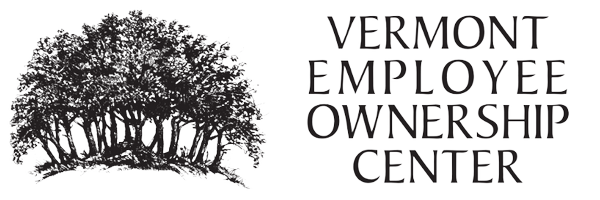“Our work life should be meaningful, motivating and rewarding, and that is what employee ownership has done for the King Arthur Flour Company and its employee-owners. I think employee ownership is the natural and obvious way to go in business!” - Frank Sands

Started in Boston in 1790 and now based in Norwich, Vermont, King Arthur Flour is America’s oldest flour company. Since 1990 it has grown from a small mail-order business with five employees to a nationally known company with nearly 200 employees. After five generations as a family-owned operation, the company is now 100 percent employee-owned. Frank Sands explains why he and his wife Brinna chose to sell the business to their employees and how that decision has been instrumental in the company’s enormous success.
VEOC: How did you first come across the idea of employee ownership, and why did you think it would be a good fit for King Arthur Flour Company?
Frank Sands: Some 30 years ago, my wife Brinna and I moved our family to Vermont from Massachusetts after selling the larger parts of our then Sands, Taylor & Wood Company – which was a 150-employee bakery supply company.
On a night train trip from White River Junction to New York City, we read an article about a man named Jack Stack who, along with several fellow employees, had bought his truck engine re-manufacturing company as it was about to go bankrupt. He instituted his version of open-book management, which included meeting regularly with employees and sharing all information about their operation, except for individuals’ income. That appealed to us, and as we grew the King Arthur Flour Company, we began to do the same thing. We also hired great new people who had the same work ethic, competitiveness, passion for product quality, and love of baking as we did.
So, some 25 years later, when it came time for Brinna and me to think about retirement, transferring ownership to people who already thought and acted like us (i.e., owners) was a very natural conclusion. Who was better equipped and more deserving to inherit and continue the King Arthur Flour tradition into its third century?
VEOC: What were some of the initial challenges you faced and how were you able to work through those?
FS: There weren’t many initial challenges because the move to employee ownership was such an obvious solution. We needed to figure out the funding and the timing of the stages of transfer. But we were a viable “bankable” company, and luckily we had a CFO (now our President) who was willing and able to dig into the details and quarterback the transition with the enthusiastic support of our Board, our fellow employees, Brinna and me.
We started with a 30% transfer, followed several years later by a 40% transfer. Finally, as we considered the tremendous tax advantages for a 100% employee-owned entity – no federal or state income tax* – it was obvious that the final 30% transfer should occur as soon as possible.
VEOC: How has employee ownership changed the way the company operates?
FS: The company operates pretty much the same way it did before, which is an indication to me of how appropriate employee ownership was, and is, for us. The major difference I see is in the increased sense of ownership and enthusiasm of the individual employees as they become more vested and see the results of their commitment in the form of stock growth and dividend sharing.
VEOC: How has employee ownership contributed to King Arthur Flour’s success?
FS: King Arthur Flour Company’s growth both in sales and profitability has been remarkable since it became employee-owned. It has become one of the leading companies in Vermont, winning numerous awards in the areas of “Best Places to Work,” social responsibility, and employee satisfaction. It was also recently cited in the Wall Street Journal as one of a handful of leading small companies in the United States. Its distinctive, premium King Arthur Flour is now the number three brand in the U.S. (soon to be number two) and the only one whose sales have constantly grown.
When people KNOW that they are owners, they think and work like owners!
VEOC: What does employee ownership mean to you personally?
FS: It has always been our personal goal to work as a true team with people who share the same vision, commitment, passion, goals and competitiveness that we have always felt for our product, our company, and our fellow employees. Our work life, where we spend most of our waking hours, should be meaningful, motivating and rewarding, and that is what employee ownership has done for the 218-year-old King Arthur Flour Company and its employee-owners. I think employee ownership is the natural and obvious way to go in business!
* Editor’s Note: This applies only to S Corporations.



